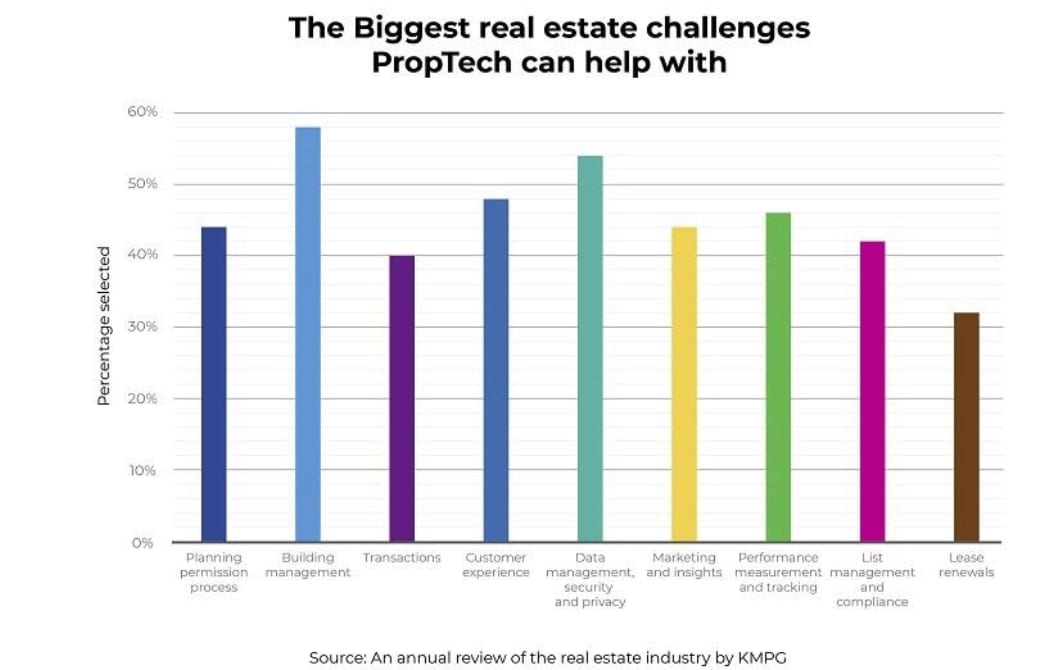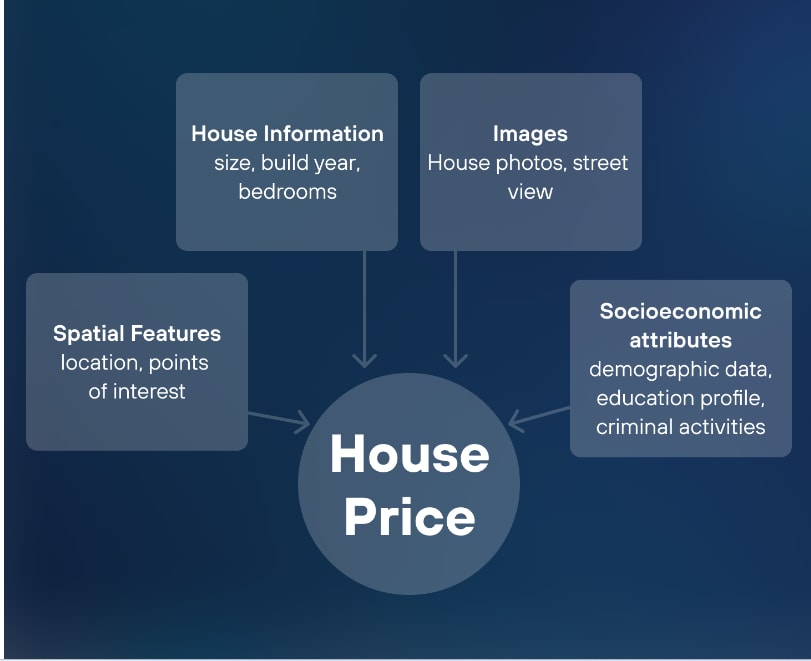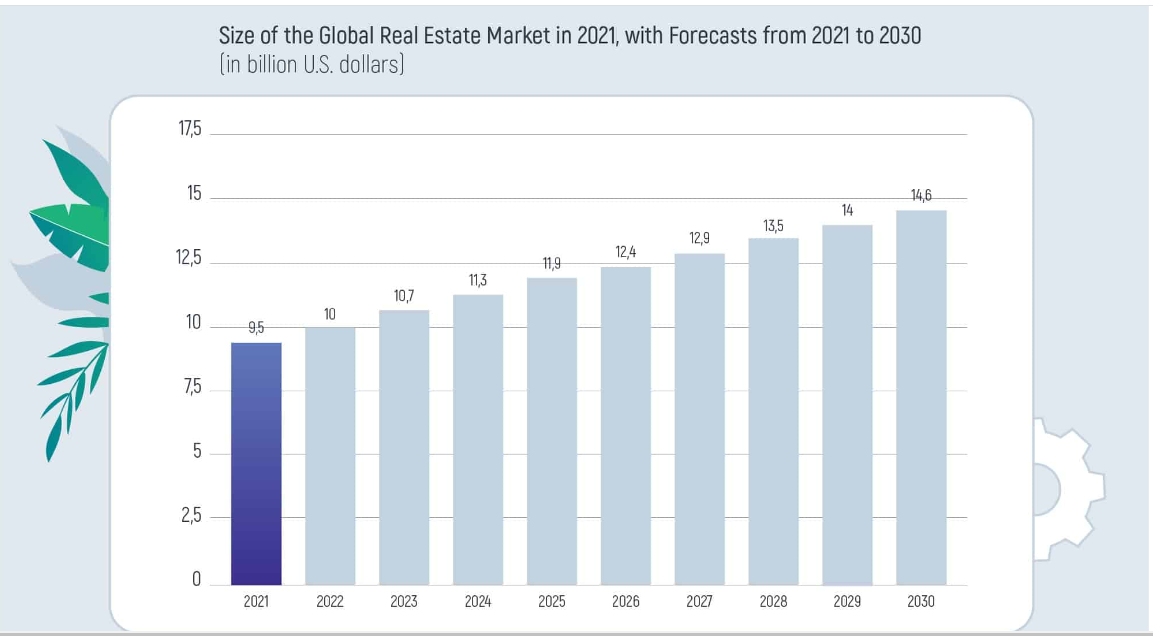How AI Can Help in Real Estate Investing

Property investment is a lucrative business, but not without its share of challenges. Many factors need to be considered to make informed decisions while dealing with real estate investing, such as location, property value, and rental income.
However, did you know with the help of AI, real estate investors can make smarter decisions and build their portfolios with greater ease?
AI and machine learning engines can help identify industry-specific patterns and trends. This leads to the discovery of new insights, simplifying workflows, and enhancing decision-making throughout the entire real estate lifecycle. Investors and brokers can then analyze this data to understand a property’s value better.
Let’s begin with exploring how AI can help in real estate investing.
AI-Based Property Analysis
Did you know that using AI for property analysis can increase assessment accuracy by as much as 50%? According to a report by McKinsey, artificial intelligence will have a profound effect on the property market.
Real estate investors and developers can increase their returns by using data-driven decisions informed by AI. Also, AI-based solutions can help real estate agents and brokers automate mundane operations, allowing them to devote more time to strategic work.

I. Benefits Of AI-Based Property Analysis
Property analysis using artificial intelligence can be beneficial in the following ways:
1. Faster and more accurate property valuations.
Traditional property valuations can be time-consuming and prone to human error. However, AI-based systems can quickly sift through mountains of data and produce reliable estimates of a property’s worth. This can save real estate professionals time and help them make more informed decisions. Additionally, by using the best rent collection apps for landlords, you can automate rent collection, receive payments online, and provide tenants with an easy way to pay rent.
2. Identification of potentially profitable investment opportunities.
In order to find promising investment prospects, AI-based property analysis can examine market trends, property values, and rental revenue. As a result, this can aid real estate investors in making better business judgments.
3. A better understanding of property and neighborhood characteristics.

Think about how helpful it would be to have an AI-powered assistant that could not only tell you about a property’s location, square footage, and amenities; but also estimate its future value and suggest the optimum time to sell or buy.
In order to help you make smart real estate investments, this assistant can sift through loads of data on local factors like population shifts, crime rates, and educational institutions’ reputations.
YOU MAY ALSO BE INTERESTED IN: 5 Tips To Evaluate An Investment Property
Real-World Application of AI Tools for Property Analysis
A prominent example of how AI has revolutionized the real estate sector is Zillow’s Zestimate tool. It employs the following data to provide a reliable estimate of home values:
- Specifics of home improvements
- Developments in the housing market
- Prices of homes in your neighborhood
- Physical location
Additional information that could be used by AI for real estate development in determining property values is as follows:
- Statistics on criminal activity
- Access to transportation systems
- Public schools in the area
- Being subjected to loud noises
- Growth in the near future
The Zestimate function generates home prices using neural networks that mimic how the human brain does.
You can also use a simple AI content generator tool like askwriter to find answers to some basic real estate property-related questions. For example, “list the child/daycare centers in X neighborhood” or similar to help you make informed decisions.
Together, AI and real estate may streamline the most tedious parts of a real estate transaction, making the process of purchasing or selling a home easier for everyone involved.
| Will AI eventually replace real estate agents, though? While AI is an exceptional tool, it cannot be relied on entirely. It is best to use AI real estate solutions under the supervision of real estate agents to ensure the highest efficiency level. By taking this route, you will ensure a human touch in negotiations, offer personalized advice, and provide the expertise and guidance required in navigating complex real estate transactions. |
II. AI-Based Investment Recommendations

Another way that AI can help in real estate investing is through investment recommendations.
Whether or not you are aware of it, our daily lives are continuously impacted by recommendation engines.
Have you ever noticed how YouTube seems to know exactly what you want to watch next? Or how Amazon suggests products that you didn’t even know you needed? And, if you’re a Netflix fanatic, let’s not forget about the “Recommended for You” section. These are just a few uses of machine learning to predict your next move based on past actions and preferences.
AI algorithms can analyze market trends and historical data to identify profitable investment opportunities and recommend strategies that align with an investor’s goals and risk tolerance. It’s like having a personal investment advisor that’s available 24/7! The tools working with the same logic can also help creatively. For example, a business name can be generated with a business name generator. Additionally, slogans for a company can be created in seconds relying on AI-powered machines.
Some Benefits Of AI Based Investment Recommendations:
1. Customised investment strategies that align with an investor’s goals and risk tolerance.
When given massive data, AI algorithms can determine which real estate investments will best help investors achieve their goals. Whether those goals are income creation, capital appreciation, or risk reduction.
Moreover, platforms driven by AI can assist investors in determining their comfort level with risk and provide recommendations for real estate investments that are suitable for their risk tolerance.
USE CASES
- Roofstock compiles recommendations for investors based on an analysis of property data performed by machine learning algorithms. This platform recommends high-yield real estate investment prospects based on a number of characteristics, including location, price, and cash flow.
- Skyline AI uses deep learning and natural language processing to evaluate data and provide individualized suggestions for commercial real estate investors.
2. Improved portfolio performance through data-driven decision-making.
Who doesn’t want to make more money?
You can monitor market trends, economic statistics, and more in real time with the help of an AI-powered real estate investment platform. This information allows you to make informed decisions that can improve the overall performance of your portfolio.
No more guessing games or relying on gut instincts. Data-driven decision-making leads can lead to better returns.
USE CASE
- GeoPhy is a commercial real estate (CRE) valuation PropTech that employs AI to deliver real-time insights. This enables investors to make informed investment decisions based on current market conditions.
- VTS is an AI-based commercial real estate platform that monitors market trends and provides lease performance data. These insights are useful for real estate investors looking to maximize their holdings.
3. Identification of potentially profitable investment opportunities that an investor may have overlooked.
You know the saying, “Don’t leave money on the table”? Well, with AI-based investment recommendations, you don’t have to.
These platforms can analyze massive amounts of real estate data to identify undervalued properties or emerging markets that offer attractive investment returns.
It’s like having a crystal ball that shows you just where to put your money to earn the most return. Who wouldn’t want access to that kind of knowledge?
For example, Black Salmon employs AI to sift through mountains of European real estate data in search of promising investment prospects. Their AI algorithms analyze rental yields, occupancy rates, and market trends, and the results are used to make profitable investment recommendations.
With this knowledge, investors can take advantage of rising markets and purchase lucrative real estate.
YOU MAY ALSO BE INTERESTED IN: 10 Loans To Invest In Real Estate With No Money
III. AI and Risk Management
As a complex industry, real estate faces various challenges, including how to use available data effectively to make informed decisions. This challenge is further compounded by unforeseeable events like the pandemic, which can disrupt markets and cause prices to rise unexpectedly.
However, using advanced analytics and an AI platform can help investors and asset managers assess the risks of investing in real estate. By using predictive analytics, investors can gain insights into a property’s current and future value. This helps them determine if it meets their investment criteria and predict potential returns. It can be especially beneficial when deciding when to exit an investment.
So, AI can help bring clarity to a complex industry and help investors make better, more informed decisions.
Benefits Of AI-Based Risk Management
1. Identification of potential risks and challenges associated with a property.
An AI-based analysis of a property’s features might reveal hidden dangers and difficulties, such as environmental concerns or legal complications.
The sooner real estate professionals are aware of these dangers, the sooner they can take measures to eliminate them and prevent losses.
2. Customized risk management strategies that align with an investor’s goals and risk tolerance.
Different people have different risk thresholds, end goals, and investment philosophies. Risk management technologies powered by artificial intelligence can assist investors in developing unique plans to meet their objectives.
Some investors may be more conservative and focused on preserving their wealth, while others may be more aggressive and eager to maximize their returns.
Using AI, investors can have strategies developed that are unique to their needs and goals while also taking their risk tolerance into account.
3. Improved portfolio performance through proactive risk management.
Proactive risk management is necessary if you want your portfolio to perform better and incur fewer losses. By using risk management solutions powered by artificial intelligence, investors may anticipate and address problems before they escalate.
Better portfolio performance, higher returns, and less risk are all possible outcomes.
Examples Of AI Tools For Risk Management
- Gridics – a web-based service that uses AI to analyze risks and give residential and commercial premises zoning data.
- Honest Buildings – a real estate project management platform that leverages AI to analyze a property’s specifics to determine its threats, then develop a plan to mitigate them and boost the project’s success rate.
- CREXi – a commercial real estate platform that uses AI to offer risk analysis and transaction management services.
Conclusion
Technology is leading the charge in the world of real estate. PropTech has become a game-changer in the real estate industry as thousands of companies, realtors, appraisers, and lenders scramble to survive the crisis.
The advantages of using state-of-the-art AI range from improved market forecasting to more efficient operations.
Professionals in the real estate industry are now better equipped than ever before to deal with massive data flows, analyze user behavior, and provide precise valuations thanks to cutting-edge AI algorithms.
And it’s not just the people who work at the top of their field who have taken notice. Homeowners, renters, and buyers alike are embracing real estate AI apps with open arms, recognizing that property is the world’s largest asset class.
It’s no surprise that financiers are getting on board. With a whopping $16 trillion value in the U.S. alone, real estate is the cornerstone of many real estate portfolios. And with PropTech at the helm, the future looks brighter than ever for the industry.
Author’s Bio: Charu is an outreach specialist with over 4 years of experience in digital marketing. Her expertise lies in developing and executing outreach campaigns that drive engagement and build brand awareness. When she’s not brainstorming outreach ideas, you can find Charu exploring the outdoors or practicing yoga.
